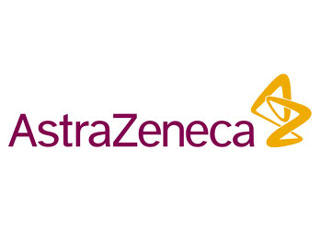 AstraZeneca announced that The Lancet Respiratory Medicine has published positive safety and efficacy data from a Phase 2b study evaluating benralizumab, a novel investigational monoclonal antibody, in patients with severe, uncontrolled asthma and elevated levels of eosinophils, a type of inflammatory white blood cell.
AstraZeneca announced that The Lancet Respiratory Medicine has published positive safety and efficacy data from a Phase 2b study evaluating benralizumab, a novel investigational monoclonal antibody, in patients with severe, uncontrolled asthma and elevated levels of eosinophils, a type of inflammatory white blood cell.The study met the primary endpoint, with patients taking benralizumab experiencing a statistically significant reduction in their asthma exacerbation rate versus subjects taking placebo over a period of one year. The study also met the secondary endpoints, with patients experiencing improvements in lung function and asthma control as measured by the Asthma Control Questionnaire (ACQ-6).
The dose-ranging, placebo-controlled study was conducted by MedImmune, the company’s global biologics and research and development arm. The study evaluated adult patients with severe eosinophilic asthma that remained uncontrolled despite the use of medium or high dose inhaled corticosteroids and long-acting beta agonists for at least one year, and who had experienced at least two exacerbations in the past year.
According to pre-specified analyses, benralizumab showed a greater reduction in asthma exacerbations in subgroups with higher baseline blood eosinophils. Specifically, the study showed that benralizumab reduced asthma exacerbations by approximately 40 to 70% depending on the dose received and baseline blood eosinophil level. The study also showed that benralizumab decreased blood eosinophil counts to low levels after the first dose.
Overall, frequencies of adverse events, including treatment-emergent serious adverse events, were similar within the benralizumab and placebo groups. Common cold and skin reactions at the injection site occurred more frequently with benralizumab than with placebo.
Elevated levels of eosinophils are associated with the cause and severity of asthma and asthma exacerbations, as well as chronic obstructive pulmonary disease (COPD) exacerbations. An estimated 5 to 10% of the 300 million people worldwide who suffer from asthma have a severe form, and people with eosinophilic airway inflammation represent approximately 40 to 60 percent of the severe asthmatic population.
“We are encouraged by the results of this Phase 2b study of benralizumab, which show a reduction in asthma exacerbations as well as improvement in lung function and asthma control when targeting the IL-5 pathway in eosinophilic patients,” said lead investigator Dr. Mario Castro, professor, Medicine and Paediatrics, Division of Pulmonary and Critical Care Medicine, Washington University School of Medicine. “This activity may be related to the fact that benralizumab uniquely targets the IL-5 receptor versus the ligand, efficiently reducing eosinophils, a key contributor to asthma symptoms. These data expand our growing understanding of how novel biologics like benralizumab could contribute positively to patient care.”
“Asthma is a highly heterogeneous disease and these data advance our understanding of patient subtypes, potential biomarkers and targeted therapies to achieve the best outcomes for patients,” said Bing Yao, senior vice president and head of MedImmune’s Respiratory, Inflammation and Autoimmunity Innovative Medicines Unit. “The insights from this Phase 2 trial played a key role in the design of our Phase III asthma programme. We are encouraged by the development prospects for benralizumab as a potential innovative medicine for patients with severe asthma and COPD.”
Detailed results and safety data from the trial were published in The Lancet Respiratory Medicine.
Benralizumab is currently in Phase 3 development for severe, uncontrolled asthma and COPD. A personalised healthcare strategy is included in the trial design where a simple blood test is used to identify patients with elevated blood eosinophils who are most likely to respond to therapy. The optimal dosing regimen is being evaluated in the Phase 3 studies.
Date: October 9, 2014
Source: AstraZeneca
Filed Under: Drug Discovery




